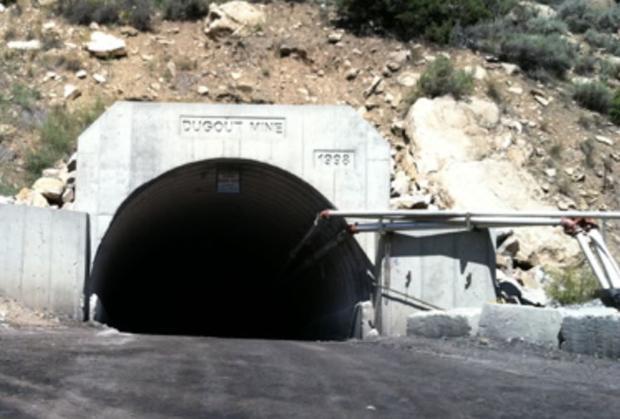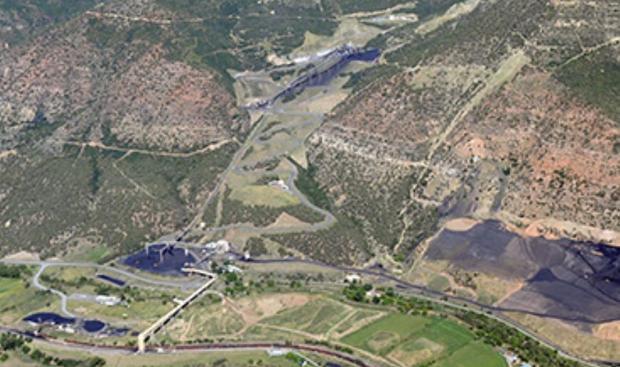Utah Coal Company Seeks Relief From Federal Lease Payments

By Karen Graham
March 10, 2018 - Utah’s largest coal producer is seeking a tax royalty reduction potentially worth millions of dollars on what it owes for federal coal leases mined at the Sufco Mine near Salina, but the filing was kept out of the news.
In confidential filings submitted to the federal Bureau of Land Management (BLM), Louisville, Kentucky-based Bowie Resource Partners has asked for a reduction that leaseholders are allowed to seek when they run into unforeseen difficulties extracting coal, according to the Institute for Energy Economics and Financial Analysis (IEEFA).
The BML is poised to grant the coal company's request but cites the company's need to "protect trade secrets" as the reason they won't divulge how large a royalty cut Bowie is seeking, how much coal the relief would cover or just what kind of complications the company is having extracting its coal.
The Salt Lake Tribune has been covering the Bowie Resource Partners story and reports the request only became public after the Utah Division of Oil, Gas and Mining (DOGM) signed off on the reduction request.
In a December 5, 2017, letter to the BLM, DOGM director John Baza claimed that the coal won’t be “economically recoverable” without relief from the usual 8.0 percent royalty. “I find the request to be reasonable in light of the geologic, quality and engineering challenges to be encountered in mining the panel,” Baza wrote.

The Dugout Canyon mine is located on 9,691 acres in Carbon County, UT approximately 12 miles northeast of Price, UT.
Photo by Bowie Resources
Underground mines extracting coal on government lands must pay an 8.0 percent royalty fee on the value of their production, minus allowances for transportation and processing costs. At today's depressed coal prices, that amounts to about $2.80 a ton which is shared by the state of Utah.
And until the final decision is made by the BLM, not even Utah is sure about how much revenue they will lose. Sufco mine general manager John Byars didn't respond to an inquiry by the Salt Lake Tribune seeking a comment.
According to the IEEFA, while the Sufco mine, one of three Bowie has in Utah, produces over 5.0 million tons of coal a year, its production is seeing a downward trend due to power companies switching to cleaner energy sources. The thing is, that while royalty reductions are not unusual, they are also not routine and easy to get, normally.
A coal company must submit extensive documentation to show the need for relief. Then, the request often takes a couple of years to process and any relief is applied retroactively as a credit on future royalty obligations. The coal company must then go through a re-certification process every year to show mining conditions justifying the reduction still persist.

The Bowie #2 mine is a longwall mining complex in Paonia, Colorado.
Photo by Bowie Resources
The IEEFA also says Bowie’s two other Utah mines, Dugout, and Skyline, have also sought reductions, as have the now-shuttered Horizon, West Ridge and Deer Creek mines over the past 20 years.
Bowie Resource Partners has not been doing well over the past couple of years, including being taken to court by Peabody Energy over the collapse of a $358 million mine sale after Bowie failed to line up financing for the cash purchase price, according to the Wall Street Journal in June 2016.
Then, in March 2017, U.S. Department of the Interior Secretary Ryan Zinke announced a subsidiary of Bowie Resource Partners was granted a $22 million lease that covers 56 million tons of coal in central Utah, the first of 14 coal strips not under a moratorium. The bidding for the lease was allegedly controversial because some people claimed it was a "single-bidder auction."

A mining technician oversees a coal export terminal.
Photo by Peabody Energy, Inc.
As was reported in Digital Journal last month, coal export terminal developer Phil Tagami and Utah coal producer Bowie Resources, filed a lawsuit in Oakland, California, arguing Oakland City Council used flawed scientific data in 2016 to reach their unanimous decision to reject a coal terminal proposal.
So, is Bowie biting off more than it can chew? The strange thing about all this is that while the Trump administration continues to back coal, including what looks like a reduction in royalty payments for Bowie, coal continues to decline. This latest effort by the coal sector shows just how desperate the situation has become now that U.S. utilities are shifting away from coal-fired power plants to cleaner renewable energy sources.
CoalZoom.com - Your Foremost Source for Coal News

